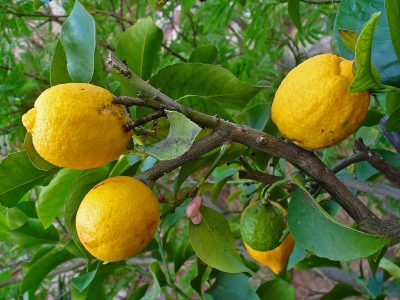Lawsuit Challenges Trump Administration’s Eleventh-hour Approval of Dangerous Pesticide Banned in More than 100 Countries
Annual Use of Up to 2.5 Million Pounds of Neurotoxin Aldicarb Approved for Florida Citrus

All Global Research articles can be read in 27 languages by activating the “Translate Website” drop down menu on the top banner of our home page (Desktop version).
***
Public-interest groups sued the Environmental Protection Agency today over its rushed decision in the final days of the Trump administration to reapprove previously cancelled uses of the dangerous pesticide aldicarb on Florida oranges and grapefruits.
The decision allows 100,000 acres of citrus to be treated with up to 2.5 million pounds of products containing aldicarb, a pesticide banned in more than 100 countries and one of only 36 pesticides classified as “extremely hazardous” by the World Health Organization.
“This approval of aldicarb is just one more assault on the men and women who harvest our citrus crops in Florida, who do ‘essential’ work but who are treated as dispensable,” said Jeannie Economos, coordinator of the Pesticide Safety and Environmental Health Project at Farmworker Association of Florida. “No one should risk their health and the health of their families in the course of doing a hard day’s labor feeding America.”
Aldicarb’s approval on Florida citrus came with lightning speed after a legally mandated public comment period that ended on Jan. 6. One day later, more than 100 pages of risk assessment documents were finalized, and on Jan. 12 — eight days before the transition to a new presidential administration — the Trump EPA finalized the approval.
“The outrageous decision to just ignore all the troubling research and expand use of this dangerous neurotoxin reeks of political interference,” said Nathan Donley, a senior scientist at the Center for Biological Diversity. “We’re asking the court to make the EPA do its job and protect people and the environment. Florida’s rivers, lakes and streams should not be a dumping ground for poisons forbidden in countries across much of the globe.”
This approval came after representatives from the citrus industry lobbied the EPA, which had previously committed to banning aldicarb, to approve use of the neurotoxic pesticide on the nation’s citrus. The lobbying efforts included a meeting directly with the agricultural advisor to then-EPA administrator and Trump loyalist Andrew Wheeler.
“The former Trump administration is no longer in charge of EPA, but many of the actions it took at the behest of chemical agriculture remain in place,” said Dr. Olga Naidenko, Environmental Working Group’s vice president for science investigations. “Aldicarb is a potent neurotoxic pesticide that is especially risky for young children who are exposed through food or proximity to the fields where it’s sprayed. The EPA must follow the science and not the demands of the pesticide industry and ban the use of aldicarb on Florida’s citrus crops.”
In addition to being designated as “extremely hazardous” by the WHO, aldicarb is also one of the few pesticides — along with DDT — subject to regulation under the Rotterdam Convention, an international treaty designed to reduce trade of the most hazardous chemicals in the world. The United States is one of only a few countries around the world that has not ratified the treaty.
Aldicarb is a known neurotoxin that can impair normal brain development in young children. Harms to people are similar to those seen in wildlife, where exposure can cause developmental defects, dizziness and blurred vision, abdominal pain and vomiting.
In 2011 the EPA and Bayer reached an agreement to end the use of aldicarb in the United States after the EPA found that its ongoing use posed unacceptable dietary risks to infants and young children. The crop use that resulted in the highest risk to infants and children was citrus, which Bayer agreed to cancel immediately. While the other uses of aldicarb were being phased out, AgLogic applied for, and received, approval for use on a small subset of other crops, like cotton and sweet potatoes.
After the 2011 phaseout of most uses, U.S. agricultural use of aldicarb has been consistently low, with under 100,000 pounds used each year. Despite its low use in recent years, aldicarb was detected in drinking-water systems in six states serving nearly 1 million people between 2015 and 2017.
The EPA’s approval of aldicarb on Florida citrus crops is projected to exponentially increase use across the state.
Today’s lawsuit was filed by the Farmworker Association of Florida, Center for Biological Diversity and Environmental Working Group in the District of Columbia Circuit Court of Appeals.
*
Note to readers: please click the share buttons above or below. Forward this article to your email lists. Crosspost on your blog site, internet forums. etc.
Featured image is from Wikimedia Commons

